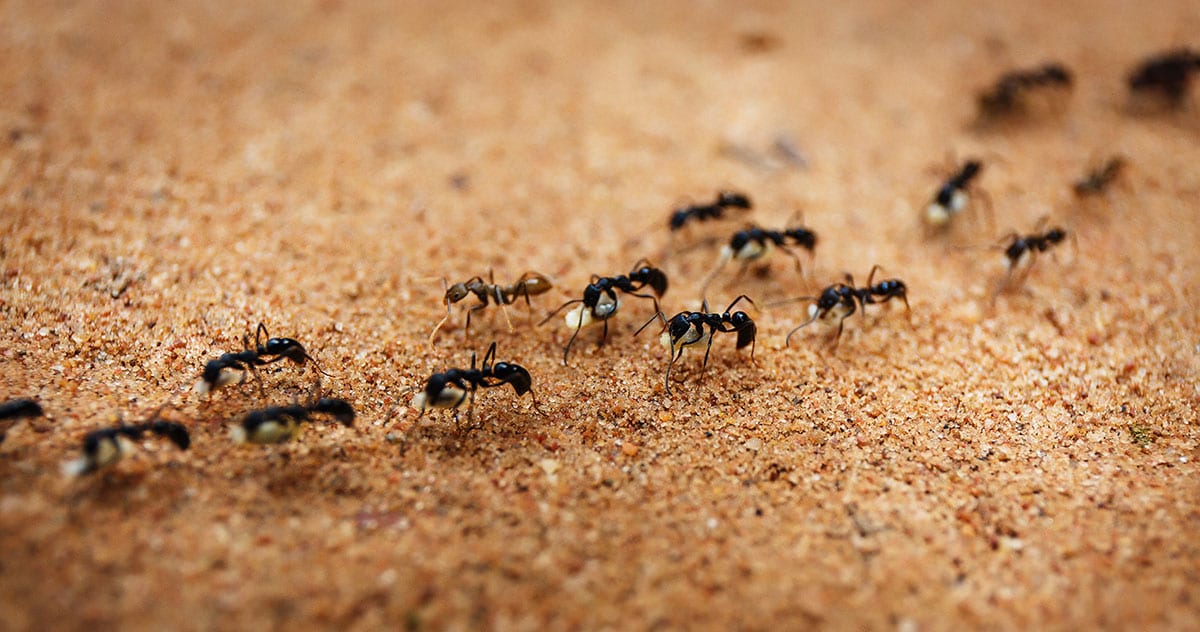5 Pest Control Tips to Keep Ants Away

Ants are either friends or foes.
They are hardworking friends because they are enormously beneficial to the ecosystem. Like earthworms, when they dig tunnels to create their colony, they also mix and aerate the soil, allowing the nutrients, oxygen, and water to reach the ground. They are also excellent decomposers as they feed on dead animals, insects, and organic wastes. They are also natural pest control agents as they eat insects that are damaging crops and plants.
In this case, ants play a vital role in biodiversity. However, there are situations where we need to keep them away from the inside of our homes. They can be damaging to homes or threatening to humans. Hence, it is essential to make sure that we keep them in line.
In this blog article, let’s dive into five helpful tips to keep Utah pests such as ants away from home. There are several species of ants like the carpenter ants, velvety tree ants, pavement ants, harvester ants, and field ants. These ants vary in color, size, food and shelter preferences, and the damage they can cause. Since this is the case, dealing with each species may require a different approach or treatment.
-
Aim for trails.
Ants are desperate for food and water so they can survive. So the worker ants scout for food by moving back and forth the colony. Once they find a food resource, they leave off a scent that forms a trail so the other ants can follow it and gather food.
One way is to remove these ant trails of pheromones is to prevent ants and more ants from invading your home. In a spray bottle, put vinegar and water together and shake well. Spray it on the ant trail to erase the scent and break them up. If you notice the ants stray to find a new path to the food resource, continue spraying them down.
A word of caution: spraying an insecticide on the ants while in a queue will not solve the problem. Instead, they will come back – with more ants. The goal of this action is to remove the scent trails.
-
Install ant baits.
Ant baits are edible insecticides that are sugary sweet, yet incredibly toxic for ants. Set down the ant baits in areas around your house where you are seeing them. Place them near potential food supply areas, like the kitchen and dining room. Otherwise, their hiding spot may be hidden and damp areas, for instance, inside the walls, behind the window frames, in between cracks and crevices, under the appliance, furniture, or appliance.
After placing the bait, it is up to the worker ants to do their job to bring the food back to their colony. Though it will take days to weeks to eliminate them, it will cut a more significant number of ants or the entire colony itself.
-
Maintain cleanliness.
A clean surface, environment, and surroundings are a proven way to keep the ants away. As ants scour for food inside the house, ensure that the surfaces are clean and free from food crumbs or spills.
Wash the dirty dishes thoroughly and remove any leftover food to avoid ants from coming over to feast on them.
Keep food inside sealed or air-tight bags or containers. Properly storing will deny ants and other pests access to any food supply.
It will also do well to sweep or vacuum the floor often to remove any unnoticeable food crumbs that may have evaded your watch.
Discard stagnant water because moisture is another attractant and necessity that ants need for survival.
-
Use caulk or sealant.
Like any other pests, denying the ants’ entry is a preventive measure so you can save yourself trouble in the future. Generally, ants can grow up to half to an inch long. They are so tiny that they can get into your home through little holes and broken screens.
Check your home for areas that are likely entrances for these pests. Seal them with caulk or sealant. After some time, reapply the sealant to ensure that everything is working alright. Moreover, doing this preventive measure fends off other pesky menaces.
-
Use ant barriers.
Ant barriers or insecticides are helpful to prevent ants from setting foot into your home and forage for food. Spray the insecticide around your home, both inside and outside.
It is best to spray ant barriers after you have removed the ant infestation from your home. It is a preventive measure that you can do to steer pests away. Various ant barriers are available for public use, but it is excellent to consult a professional ant exterminator for the most effective, safe, and environmentally friendly insecticide.